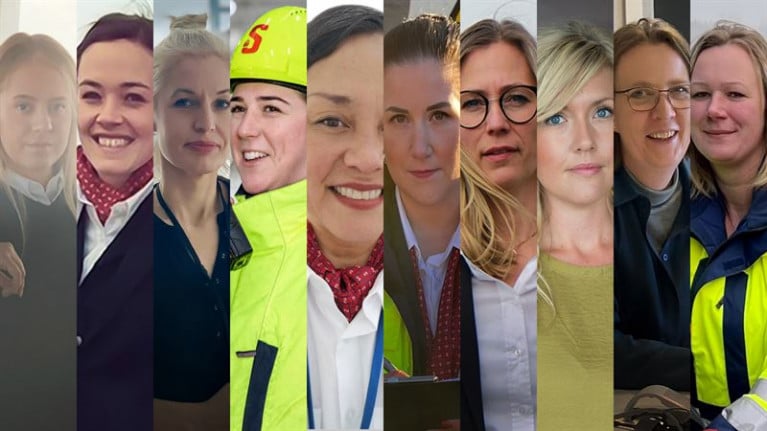Displaying items by tag: Women in Maritime
Ferry Operator Stena Line Aims to Become the Most Diverse Shipping Company in the World
Ferry operator, Stena Line has increased the number of female managers it employs by an impressive 42% in only 5 years and has the ambitious target of ensuring they account for 30% of all management by the end of next year.
Only a meagre 2% of the 1.2 million seafarers globally are women (see: International Women's Day), so the Swedish ferry company is already doing a lot to challenge and change that.
By working hard to tackle the gender gap, the company has increased the number of female managers to one out of every five it employs (20% of all managers) in only five years - an increase of 42%. But targets are much more ambitious: before the end of 2022 its intention is that 30% of all managers, on all levels of the company, shall be females; from ferries and ports to management teams and, importantly, at board level.
”We need to ensure that we can attract, recruit and keep the best talents by actively recruiting from all genders for all positions. Gender equality gives us more competence to choose from in a world where companies are competing for talent. Research shows that when companies are more equal, they are also more creative and innovative, as well as making more money”, says Margareta Jensen Dickson, Group Head of People, Stena Line.
Stena Line’s diversity ambitions are guided by the UN’s Sustainable Development Goals 5 – Achieve Gender Equality and Empower all Women and Girls – and specifically, to achieve Target 5.5 “Ensure women’s full and effective participation and equal opportunities for leadership at all levels of decision-making in political, economic and public life”. The aim is to successfully fulfill one of the key indicators to achieving this, which is the ‘proportion of women in managerial positions’.
To achieve this Stena Line implemented a strategy to increase the number of female managers across the company. And it has paid off. In less than five years the percentage of female managers across the company has increased to one in every five, an increase of 42%.
But the company has a much more ambitious target. Before the end of 2022, the aim is that 30% of all managers, on all levels of the company, shall be females - from ferries and ports to management teams and the company’s board. Then the long-term aim is for Stena Line to achieve total gender equality.
To reach these targets, Stena Line has implemented several actions, including:
- Succession planning: implemented to ensure that all genders are represented in the succession planning of managers at all levels of the company.
- Challenge recruitment traditions: brought in new routines to change the recruitment traditions in all positions, especially where there is gender imbalance.
- Global Female Leaders’ Network: A new network for all female leaders within the Stena Sphere is to be launched in 2021. The purpose is to make more female role models visible, create more connections within the Stena Sphere, as well as attract, motivate and develop young female leaders within the global Stena network.
- Global employer branding campaign: On International Women’s day, 8 March 2021, Stena Line will launch a global ‘employer branding’ campaign on social media, aimed at women in shipping and transport. The campaign will run for the rest of the year and will highlight female role models and leaders from different parts of the company.
Here are some of Stena Line’s key women working in maritime across the UK and Ireland
Lynette Bryson, Chief Officer (Irish Sea)
Katie Baxter, Third Office (Irish Sea)
Lesley Fletcher, Port Duty Manager (Scotland)
You can see all the female leaders featured in the campaign here: Women in Maritime
























































